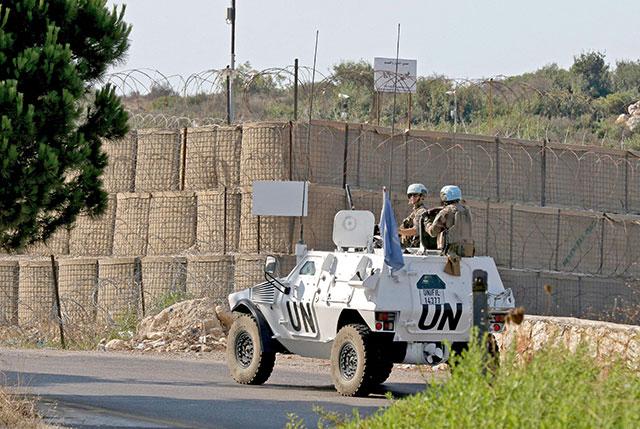- Local News
- Thu-2021-08-05 | 10:01 pm

Nayrouz News Agency :
The Israeli air force said it carried out air strikes on neighbouring Lebanon for the first time in seven years on Thursday, following a second day of rocket fire across the border.
Lebanon condemned the strikes as an "escalation" that could mark a change of tactics by Israel, while UN peacekeepers urged restraint.
"Earlier today [Thursday], rockets were fired from Lebanon into Israeli territory," the Israeli air force tweeted.
"In response... fighter jets struck the launch sites and infrastructure used for terror in Lebanon from which the rockets were launched."
The air force said "an additional target in the area from which rockets have been launched in the past was struck as well".
Israeli jets routinely strike Palestinian militant targets in Gaza, and suspected Hizbollah or Iranian targets in Syria.
But it was the first time since 2014 that they had hit targets in Lebanon,
Lebanon's Al Manar television, run by the powerful Shiite militant group Hizbollah, said Israeli forces carried out two strikes at around 12:40 am (2140 GMT) outside the town of Mahmudiya, some 11 kilometres from the border.
Lebanon's official National News Agency also reported the strikes, but provided few details.
Lebanese President Michel Aoun said "Israel's use of its air force to target Lebanese villages is the first of its kind since 2006, and suggests an intention to escalate attacks" against Lebanon.
The UN peacekeeping force UNIFIL, which has been deployed in Lebanon since 1978 and has patrolled the border since the 2006 conflict, said on Thursday that Israel and Lebanon should "act with urgency" to deescalate tensions.
Meeting with Israeli and Lebanese military officers at a UN position in southern Lebanon, UNIFIL's head of mission Stefano Del Col called on the sides "to explore ways to reinforce security and stability along the Blue Line," referring to the UN-demarcated border.
"In the most imperfect times, this mechanism has served you well, and now is the time to recommit to it, not allow the spoilers to have the better of us," Del Col said, in remarks relayed by UNIFIL.
Lebanese army investigating
Israeli warplanes last struck Lebanese territory near the border with Syria in 2014, but they have not targeted Hizbollah's south Lebanon strongholds since the militants fought a devastating conflict with Israel in 2006.
Thursday was the second straight day that Israel had reported rocket fire from Lebanon.
Three rockets were fired on Wednesday, two of which reached Israel, striking near the northern town of Kiryat Shmona, where four people were treated for "stress symptoms".
In response to that attack, the Israeli force said it had carried out three rounds of retaliatory shelling of south Lebanon.
It triggered multiple brush fires in the tinder-dry conditions, but there were no reports of casualties.
The Lebanese army said 92 artillery shells fired by Israel landed in southern Lebanon following the Wednesday rocket fire.
It said it was investigating who fired the rockets.
The exchange came as thousands of grief-stricken Lebanese marked the first anniversary of a devastating explosion in Beirut Port that killed at least 214 people and irreparably scarred the nation's psyche.
The then government resigned in the face of a wave of popular anger but a year later, despite a worsening economic meltdown, no new Cabinet has been formed.
Israel has warned repeatedly that it will not allow a power vacuum in Beirut to undermine security on its northern border.
The military said it "views the state of Lebanon as responsible for all actions originating in its territory, and warns against further attempts to harm Israeli civilians and Israel's sovereignty".









